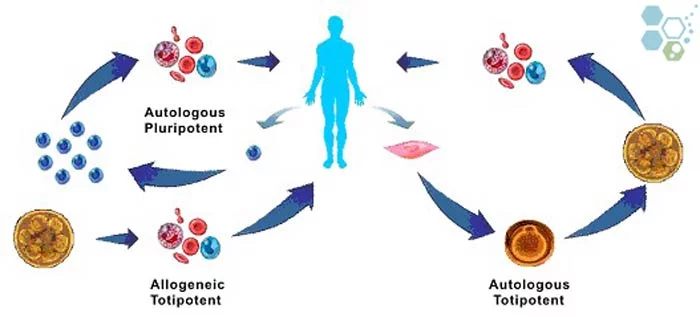
Autologous stem cells such as Adipose tissue derived stem cells are the opposite of allogenic stem cells, as only one patient stands as both donor and receiver.
Autologous Stem Cell Therapy
The stem cells will be harvested from the patient’s body, most common location of which is the bone marrow, and will be transplanted back to the patient for treatment of a variety of conditions including: shoulder injuries, Acute coronary syndrome,diastolic heart failure, als fasciculations and anoxic brain injuries.
Autologous stem cell transplantation (ASCT) is a procedure in which a patient’s own stem cells are harvested, stored, and then returned to the patient after they’ve undergone a high dose of chemotherapy and/or radiation. This procedure is often used to treat certain types of cancers, especially hematological malignancies such as lymphoma and multiple myeloma.
Autologous stem cell transplantation,NK cells and muse cells have the advantage of using the patient’s own cells, which reduces the risk of graft-versus-host disease (GVHD), a potential complication of allogeneic transplants where donor cells attack the recipient’s tissues. However, ASCT is still a major medical procedure with possible risks and complications, and decisions regarding its use should be made in close consultation with a medical oncologist or hematologist.
If you've seen people take ice baths or cold showers and wondered if they're onto… Read More
Immunomodulation stands at the forefront of biomedical research, steering the immune system's ability to fight… Read More
Stem cell research leads the charge in medical innovation, heralding revolutionary advances in regenerative medicine.… Read More
The blood-brain barrier (BBB) is a crucial shield for the brain, regulating the entry of… Read More
While peptide bonds are fundamental to protein structure, their direct relationship with stem cells lies… Read More
When discussing cutting-edge cancer treatments, NK cell therapy stands out due to its unique approach… Read More